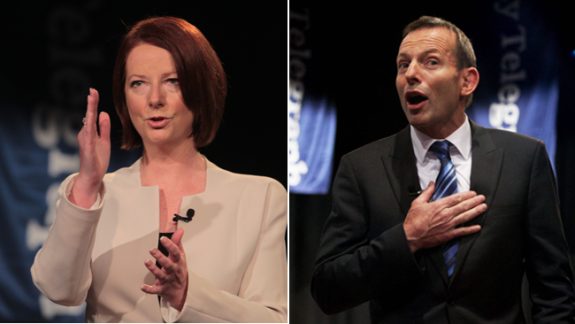“Thinking, Fast and Slow”

“Unless there is an obvious reason to do otherwise, most of us passively accept decision problems as they are framed and therefore rarely have an opportunity to discover the extent to which our preferences are frame-bound rather than reality-bound.”
“Thinking, Fast and Slow”, Daniel Kahneman
In “Thinking, Fast and Slow”, Daniel Kahneman talks about System 1 and System 2 thinking. Wikipedia describes them thus:
“System 1: Fast, automatic, frequent, emotional, stereotypic, subconscious
System 2: Slow, effortful, infrequent, logical, calculating, conscious”
Kahneman goes on to make the point that often human beings make decisions quickly, then rather than thinking carefully about a hasty judgement, they use their System 2 thinking to justify their System 1 judgement. For example, Tony Abbott announces a policy to improve Aboriginal Health Services in remote areas. Instinctively, someone anti-Abbott says that it won’t work. After that, rather than look at the individual components of the policy, the support it has amongst indigenous leaders or any arguments for the merits of the scheme, the person’s System 2 thinking will keep finding ways to support the initial System 1 reaction.
This partially explains the Gillard Government’s inability to gain traction, and to receive support in areas where people would actually support the idea itself. It’s not totally about the inability of the Government to “sell its message”, or even the MSM’s bias. Of course, it doesn’t help when the first time people hear a proposal that it’s framed in negative terms, or that headline portrays a change in policy as a “broken promise” or a “backdown”.
Kahneman also talks about the “sunk costs fallacy”. Again from Wikipedia, “In economics and business decision-making, a sunk cost is a retrospective (past) cost that has already been incurred and cannot be recovered. Sunk costs are sometimes contrasted with prospective costs, which are future costs that may be incurred or changed if an action is taken.” In simple terms, once you’ve invested time, money or energy into a course of action, it’s hard to simply say that’s it, I’m going to do something else. Rather than admit the car we’ve bought is a “lemon” and spending another couple of thousand getting something fixed, we might be best to just leave it where it is, and put that money towards taxis. Similarly, governments are reluctant to say, for example, that the ticketing system they’ve spent a billion developing is inefficient and that it’d be cheaper to make public transport free and pay people to ask for donations to keep the system running.
I can’t help but think about the notion of sunk costs in relation to coming election. As I suggested in a previous blog, some people seem to see elections solely in terms and winning and losing. It’s probably symptomatic of being one of the major parties. Smaller parties like the DLP, the Democrats and the Greens have always been more concerned with what they can achieve before and after elections because they know the won’t form government.
Both Liberal and Labor should be aware that they won’t keep winning elections. The issue for them shouldn’t be what will win the election, but what will they be able to achieve. How can they – in terms of the “sunk cost fallacy” – stop the other side undoing what they’ve done?
Should Gillard be twisting and turning in the hope of winning a few votes here and there, or should she accept that staying true to the things Labor want to achieve is the better way to go. They’ve let the Liberals set the agenda on asylum seeker policy only to find themselves unpopular with both sides of the debate.
The quote from “Thinking, Fast and Slow” at the top of the page talks about framing, and, of course, if Gillard has made any mistake, it’s been that they’ve allowed other people to frame the debate in the wrong terms. By constantly moving the focus forward to the next election, the question issue becomes about how to ensure a win, not about how to make best use of their time in government. When the dust settles, will Labor be saying we grabbed a few votes here and there with populist policies? Or will the say that in these six years, we managed to set in motion many things that Tony couldn’t unwind.
To take one example – most schools were happy with the money “wasted” on their school halls. Not even the Liberals have a policy of to knock them down.
Like what we do at The AIMN?
You’ll like it even more knowing that your donation will help us to keep up the good fight.
Chuck in a few bucks and see just how far it goes!
Your contribution to help with the running costs of this site will be gratefully accepted.
You can donate through PayPal or credit card via the button below, or donate via bank transfer: BSB: 062500; A/c no: 10495969